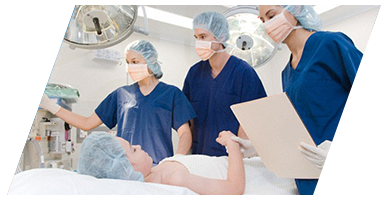In most cases, your Specialist Anaesthetist will meet with you shortly before your child’s scheduled procedure.
Please refer to this section in preparation for your child’s anaesthetic and advise our office of any concerns or questions you may have.

Role of your Child’s Anaesthetist
Your child’s Anaesthetist will aim to make this a safe and comfortable experience. Your Specialist Anaesthetist will monitor your child carefully throughout their operation or procedure. Your Anaesthetist will also look after pain relief and treat any nausea or vomiting that may occur soon after your child wakes.
Please let your Anaesthetist know if you have any concerns, especially if you or your child have had a difficult experience in the past with anaesthesia.
Preparing for your Child’s Procedure
INFORMATION
The Anaesthetist will want to know about your child’s health – especially any recent colds or asthma symptoms. The Anaesthetist will also want to know about any loose teeth or crowns your child may have.
MEDICATIONS
Please bring an up-to-date medication list with you or alternatively bring your medications. If your child takes any regular medication or inhalers, it is usually best to take them on the day of surgery unless the surgeon or Admissions nurse has asked your child not to take them. Please tell your Anaesthetist if your child has any allergies.
FASTING
Is it really necessary? Although it is not pleasant going without food and drink, fasting before any anaesthetic is a MUST. Food or fluid in the stomach may regurgitate which is VERY dangerous. You will be given instructions by your Surgeon or the hospital about when to start fasting. Please follow these instructions.
On the Day of Surgery
The less anxious your child is, the more smoothly things will go. Even young children respond well to information about going to hospital. A few days before the procedure, give your child a simple explanation of the procedure. For young children, bringing special toys or comfort objects are a good idea.
A child is more likely to be distressed if a parent is very anxious. Being present when your child goes off to sleep is often helpful but may be upsetting for some parents. It is perfectly alright for you to choose not to be present at the start of anaesthesia if you feel you will have difficulty staying calm. However, the presence of a calm parent is often beneficial for your child. It is only possible for one parent to accompany the child into theatre.
How do we get children to sleep?
Local anaesthetic cream may be applied to the hands or arms 30-60 minutes before their procedure. This allows you and the Anaesthetist to choose whether your child goes to sleep by the painless insertion of an intravenous needle or by the child breathing anaesthetic gas from a face mask. There is no one best way – children react in their own way and we will use the method that seems to cause them the least amount of distress on the day.
After your Child’s Procedure
AFTER THE ANAESTHETIC
Your child will naturally feel drowsy for a little while. We will treat symptoms such as nausea and discomfort and try to have your child feeling well again as soon as possible. It is common to have some dizziness, blurred vision or confusion which should all pass in a few hours. If your child experiences any symptoms that concern you, please let us know.
PAIN RELIEF AT HOME
If the surgeon thinks you will need stronger pain relief than Panadol or Ibuprofen, this can be arranged before your child leaves hospital.
